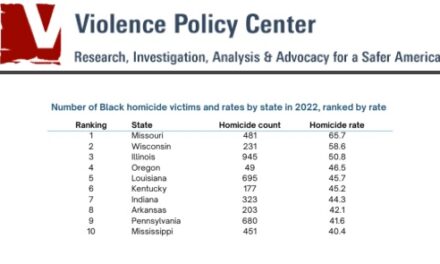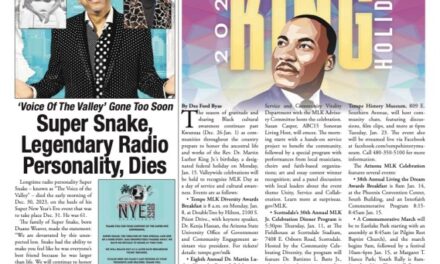By Stacy M. Brown | NNPA Newswire Senior National Correspondent
Federal housing officials should sanction two appraisal firms in Baltimore over their discriminatory treatment of Black homeowners who participated in a recent “mystery shopper” investigation of appraisal bias, the National Community Reinvestment Coalition (NCRC) wrote in a pair of complaints filed with the Department of Housing and Urban Development (HUD).
Authors of the extensive report noted that “the severity and subtlety of racial bias captured in our findings suggest that it will take sweeping and aggressive action from both policymakers and the industry itself to rid the appraisal marketplace of discrimination.”
Representatives from NRC and HUD wrote that the way that homeowners, lenders, and policymakers use the term “property values” often implies that there is one organic, objective, correct definition of what someone’s home is worth.
“But that is not the case,” they concluded.
“Our cultural conception of property values obscures the fact that human beings often determine those values,” the investigators determined.
They said professional appraisers make mistakes like anyone else.
However, they also carry biases, conscious or unconscious, into their workplace, and the consequences of an appraiser’s mistakes are much more severe than most people’s workday errors.
For instance, investigators said a store clerk who rings something up wrong could charge it back.
Likewise, a bartender who pours the wrong beer can turn around and serve the right one. But an appraiser’s mistakes, misjudgments, or prejudices can derail generations of work to build wealth within a family.
The treatment a homeowner receives while selling their home can have severe impacts, especially if outright discrimination is involved, the investigators asserted.
And an undervaluation of a home is rarely corrected. Discriminatory treatment is harmful (and should be prevented) in any setting; in the context of home appraisals, it often comes with severe economic consequences.
“There is no excuse for discrimination anywhere in the housing market, but the long-overlooked role that biased appraisers play in undermining Black wealth is an especially insidious problem,” NCRC President and CEO Jesse Van Tol said in a news release.
“We are asking federal officials to intervene in these two instances because we believe they are representative of widespread discrimination in the appraisal industry that costs Black homeowners both time and money.
“No one should be subjected to the sort of treatment these two appraisers visited upon these two families – and regulators have the power to do something about it.”
Both cases arise from an investigation NCRC conducted in Baltimore over the past year.
NCRC recruited interracial couples who own their own homes to act as “mystery shoppers” and discovered differential treatment by appraisers when the couples presented their homes with only the Black or the White partner present.
The investigation report confirmed that Black homeowners were treated worse than their White partners in terms of customer service and valuation of their homes.
In one of the complaints, NCRC and a Black homeowner detailed how an appraiser made the homeowner wait 11 weeks for a report, ignored follow-up communication, and did not explain why the information took so long.
The same appraiser, a few weeks later, timely delivered a report to a White homeowner and even sent the homeowner a courtesy email in advance with an expected timeline for delivery.
The appraiser showed differential treatment and a lack of professionalism when interest rates were highly volatile – meaning that the appraiser’s discriminatory conduct could have cost the Black client a chance at an affordable mortgage.
In the second complaint, NCRC and a second Black homeowner alleged that an appraiser undervalued a home presented by the homeowner, then overvalued a separate house presented by a White homeowner.
The appraiser valued the first home at $310,000 when it was shown by the Black partner in the interracial couple who owned it, while three other appraisers valued the same house at $350,000 or more.
This appraiser then appraised a home shown by a White homeowner and valued it $43,000 higher than any other appraiser did in the tests conducted by NCRC.
The appraiser’s pattern of bias in valuing homes in Baltimore warranted an enforcement action by NCRC and the homeowner, who was the victim of discrimination.
“Creating a truly equitable environment for homeownership is a broad and important societal undertaking that will go far beyond the confines of the appraisal industry,” investigators concluded.











